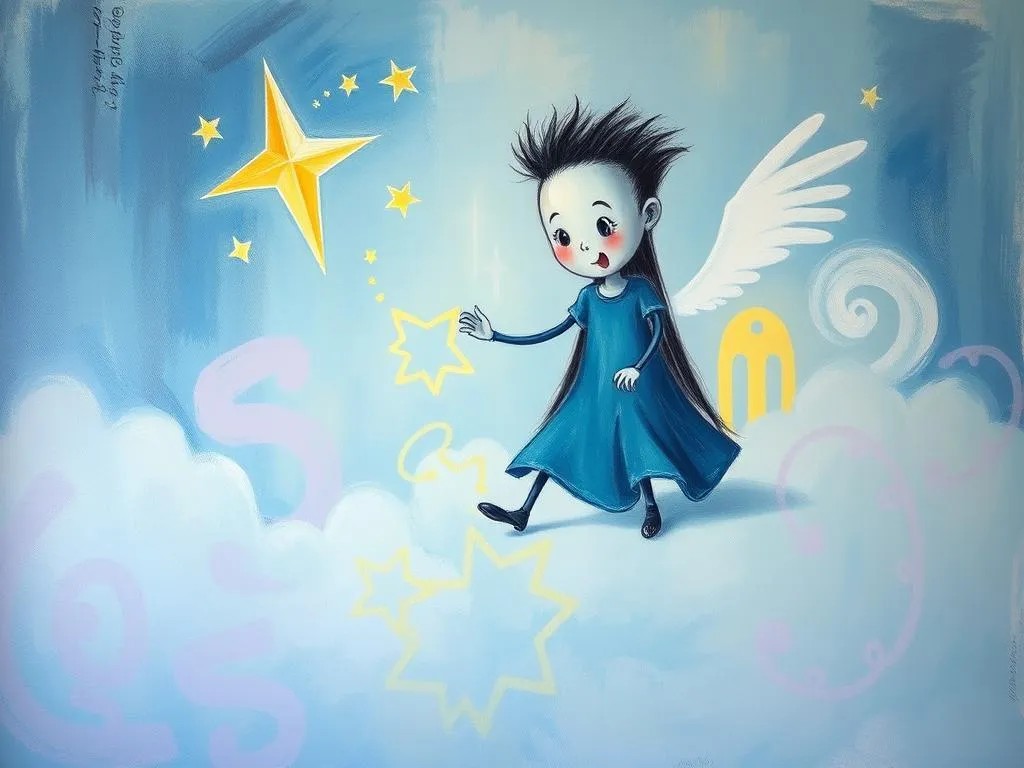
Dreams have always fascinated humanity, offering glimpses into our subconscious and reflecting our deepest fears, desires, and thoughts. Among various dream themes, disappearance stands out as particularly intriguing. This dream often evokes feelings of loss, confusion, and anxiety, making it relevant to many individuals navigating complex emotions in their waking lives. Understanding the symbolism and meanings behind dreams of disappearance can provide valuable insights into our inner worlds, encouraging self-reflection and personal growth.
Symbolism and Meaning
When we talk about the symbolism of disappearance in dreams, we’re often dealing with complex and multifaceted meanings. Disappearance itself can represent a range of emotions and experiences, from feelings of loss and abandonment to the desire for escape or transformation.
One of the most common interpretations of disappearing dreams relates to fear of loss. This could manifest as losing a loved one, a job, or even a part of oneself. Such dreams might occur during times of transition or uncertainty, reflecting the dreamer’s anxiety about significant changes in their life. For instance, if someone is experiencing a breakup or moving to a new city, they may dream of someone or something disappearing, symbolizing their fear of leaving behind familiar comforts.
Alternatively, dreams of disappearance can signify a desire for change or an escape from reality. In this context, disappearing may represent a wish to shed old identities or responsibilities. This perspective aligns with the notion of transformation, where the dreamer seeks to break free from constraints, embracing new beginnings. In this light, disappearance can be a powerful metaphor for personal evolution.
Moreover, cultural context plays a vital role in interpreting dreams. In some cultures, disappearing can symbolize a spiritual journey or a transition into a new phase of life, such as adulthood or enlightenment. For others, it may evoke the unsettling idea of being forgotten or overlooked, tapping into a universal human fear of insignificance. Thus, while the symbolism of disappearance can vary widely, it often revolves around themes of loss, transformation, and existential anxiety.
Key Scenarios and Variations
The context and specifics of a disappearance dream can significantly alter its interpretation. For instance, consider a scenario where a person dreams of a loved one vanishing. This dream might symbolize the dreamer’s anxiety about losing that person or the fear that they are drifting apart. On the other hand, if someone dreams of themselves disappearing in a crowd, it may reflect feelings of invisibility or a desire to escape social pressures.
Another variation involves objects or places disappearing. Dreaming of a cherished possession, like a childhood toy, vanishing could represent nostalgia and a longing for simpler times. In contrast, the disappearance of a familiar location, such as one’s childhood home, might signify the inevitability of change and the passage of time, prompting the dreamer to confront their feelings about growing up.
More complex scenarios might involve multiple disappearances. For instance, a dream in which several friends or family members vanish can evoke collective anxiety about relationships and support systems. This scenario could highlight the dreamer’s feelings of isolation or concern about the bonds they share with others. Alternatively, it might suggest that the dreamer is grappling with issues of trust and loyalty.
In some cases, dreams may present a more surreal twist. For example, a dreamer might find themselves in a situation where they are disappearing and reappearing in different locations. This might symbolize a struggle with identity or the feeling of being pulled in multiple directions in life. Such a dream could reflect the dreamer’s attempts to navigate conflicting priorities or roles, indicating a need for clarity and focus.
Lastly, the emotional tone of the dream—whether it is one of fear, relief, or confusion—can also influence its interpretation. A joyful disappearance may suggest liberation, while a fearful one could indicate unresolved issues or anxieties that need addressing. Thus, the variations of disappearing dreams are rich with potential meanings, each providing unique insights into the dreamer’s psyche.
Real-Life Connections and Takeaways
Connecting dreams of disappearance to real-life situations offers a valuable opportunity for self-reflection and personal growth. One important takeaway from these dreams is the need to confront and process feelings of loss or change. If a dreamer finds themselves consistently dreaming of disappearance, it may be time to explore what aspects of their life feel unstable or uncertain. This exploration could involve journaling, talking to a trusted friend, or even seeking professional guidance.
Moreover, dreams can serve as reminders of the importance of connection in our lives. If disappearance dreams often involve loved ones, it might be beneficial to evaluate those relationships. Are there unexpressed feelings or unresolved conflicts that need addressing? Taking proactive steps to strengthen these bonds can alleviate anxiety and foster a sense of security.
Another practical insight involves embracing the transformational aspects of disappearance dreams. Instead of viewing these dreams as solely negative experiences, consider them invitations to reflect on personal growth and change. Ask yourself: What parts of my life am I ready to let go of? What new beginnings am I seeking? Engaging with these questions can help turn feelings of anxiety into motivation for positive change.
It’s also essential to pay attention to the emotional resonance of these dreams. If a dream of disappearance leaves you feeling unsettled, take a moment to identify what specific feelings or experiences triggered that reaction. This emotional inventory can guide you toward deeper self-understanding and pave the way for healing.
Lastly, consider the role of creativity in processing these dreams. Engaging in artistic expression—whether through writing, painting, or music—can help channel the emotions associated with disappearance dreams into something tangible and meaningful. By transforming these feelings into creative outlets, individuals may find clarity and catharsis, allowing them to navigate their waking lives with greater ease.
In conclusion, dreams of disappearance are rich in symbolism and meaning, reflecting our deepest fears, desires, and experiences. By examining the various scenarios and interpretations, we can glean valuable insights into our lives and emotions. As you reflect on your dreams, consider the connections to your real-life situations and embrace the opportunities for growth and transformation they present. Ultimately, understanding the symbolism of disappearance can empower you to navigate the complexities of your inner world, fostering a deeper sense of self-awareness and resilience.







